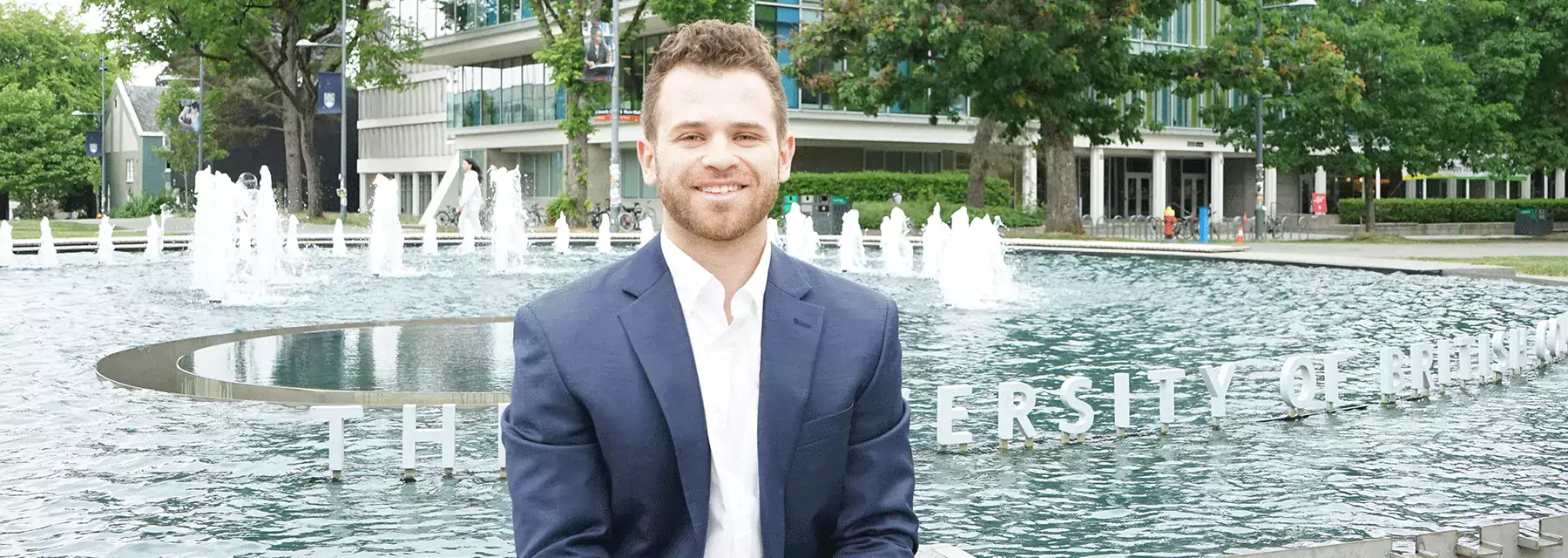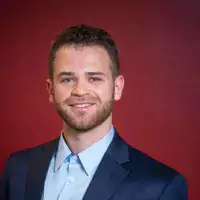
MDS Spotlight: Meet Kai Maurin-Jones, MDS Computational Linguistics, Class of 2023
Prior to joining the MDS Computational Linguistics program, Kai Maurin-Jones was finishing his Bachelor of Arts in Language and Intercultural Relations at Toronto Metropolitan University. During his second year, Maurin-Jones was a research assistant for Dr. Dana Osborne, a linguistic anthropologist, where he worked on a project investigating multilingual codeswitching practices in the Philippines.
Knowing that he wanted to pursue a master’s degree, Dr. Osborne suggested he look into linguistics programs at the University of British Columbia (UBC). In his search, Maurin-Jones stumbled upon UBC’s Master of Data Science (MDS) in Computational Linguistics.
“I had quite a strong “aha!” moment the second I read about the courses of the program and knew this was the place I had to be,” explained Maurin-Jones.
Maurin-Jones added that the MDS Computational Linguistics program was a perfect fit for him because it combined his interests in linguistics and quantitative methodologies.
The reason why Maurin-Jones chose the MDS Computational Linguistics program was its openness to accepting people from diverse backgrounds like himself and not just those from computer science, statistics, or engineering.
“Seeing similar applicants to myself … succeed and thrive in a data science career after finishing the program was a huge selling point to me”, he added.
Maurin-Jones said that one of the top benefits of the program has been the diversity of the students coming into the program. “Having a professionally and academically diverse cohort brings different knowledge bases to the collective experience of everyone in the program.”
Another benefit for Maurin-Jones has been the width of content covered in such a period of short time.
“The content covered in the program is specifically chosen by staff to be not just what is fundamental and necessary to the field, but also exactly what is most sought-after in-industry at the moment,” he explained. Maurin-Jones cited a course that explored how ChatGPT models worked as an example.
As well, learning in-person versus online allowed Maurin-Jones to engage with the content and ask questions when he has them.
“To interact with classmates and teachers not only makes answers more accessible but also creates much more of a closer bond within the cohort. Having completed the later portion of my undergraduate degree online due to COVID-19, being back in-person was a breath of fresh air and a reminder of how much more I can get out of in-person learning than online,” Maurin-Jones said.
Another factor in Maurin-Jones’ application to the MDS Computational Linguistics program was the capstone project.
“Working with real partners on a real project goes beyond even the exposure to how a ‘real’ professional environment looks and works and how you must navigate it, it’s also an opportunity to network and make potentially life-long connections with other top individuals in their respective fields,” he said.
He added being able to apply everything that he has learned, like large language models, throughout the program to the capstone project has been an incredibly rewarding experience.
With the program now over, Maurin-Jones is keeping his options open but is looking for roles related to data science, computational linguistics, and machine learning, and is particularly excited about any opportunity that is looking to utilize Large Language Models.
Kai’s Top 3 Tips on Succeeding in the MDS Computational Linguistics Program:
- Don’t stress about the little things. Looking back, I stressed so much about not understanding every single detail, but the truth of the matter is that there’s such a large volume of information, you won’t be expected to memorize or perfectly understand everything when you first hear it or learn about it. Everything will click when it clicks. Make sure to understand core concepts and main ideas, and the details will fall into place.
- Don’t procrastinate. Most of the program feels like a constant bombardment of new information. There is a lot of work to do. Between classes, assignments, and quizzes, it might feel difficult to find time to breathe, so the best way to stay afloat is to do things as soon as you can.
- Make the most of it. I mean this in every sense. If you’re not from Vancouver, like me, you might also find it difficult to find time to explore the city and see the mountains, but take the opportunities when you get them. Similarly, the program has so many amazing professors, accomplished students, individuals who have already experienced entire careers prior to the program, career counsellors, seminar talks with other experts, and more, and as with all things, you’ll get out what you put in. Your relationships with your classmates and professors won’t just end with courses; they’ll continue into your time after the program more than you can imagine.
